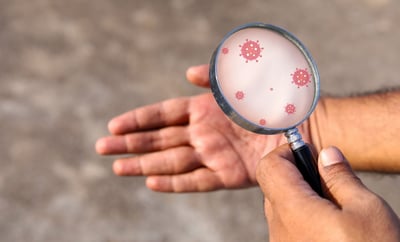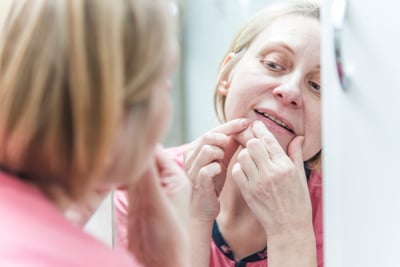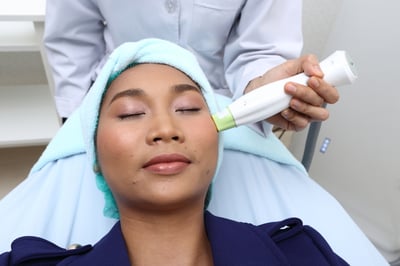
Most people are well aware that there is no one-size-fits-all skincare product or routine. Skin comes in a variety of different types and all types can experience many different issues. Treating these issues requires tailoring treatments to fit the person and their situation: the idea of “personalized skincare.”
What is personalized skincare?
Personalized skincare is a skin treatment or product made to address a specific issue. It takes factors like sensitive or oily skin into account, and aims to treat a problem without creating more issues in the process.
Solutions can be as simple as using a particular acne cream made for sensitive skin, or something as complicated as using your DNA to determine what steps you can take to prevent facial sagging.
When it comes to a particular skin concern, be it wrinkles, acne, rosacea, or even skin cancer, there are many factors that affect your risk of developing that issue and how easy it is to treat.
This includes:
- Genetics
- Sun exposure
- Hormones
- Other health conditions, like diabetes or lupus
- Age
- Exposure to air pollution
- Weather and season
- Stress
Your genetics and overall health can affect how well medications are absorbed into your skin and how well your skin will respond to damage. Instead of prescribing the same treatment for anyone with the same skin problem, physicians who are well-versed in personalized skincare tailor the treatment to an individual after considering these factors. Ultimately, this leads to better outcomes.
The technologies shaping the future of personalized skincare
The skincare industry is a big deal, so it’s no surprise that a lot of effort and research go into new skincare technology. We already see emerging technologies, like AI, quickly applied to the realm of skincare. Here are some of the more recent technologies that are changing the skincare game and how they lead to a more personalized approach.
DNA-based skincare
DNA-based skincare is exactly what it sounds like: recommendations based on your genetics. DNA-based skincare is backed by science and years of research on the human genome. Several companies, like Sequencing and SkinDNA, now offer a service that analyzes genes related to how your skin works. They will then send you a detailed report that provides insight into things like:
- How your skin will age
- Skin cancer risk
- How your skin reacts to sun exposure and pollutants
- How well your skin retains moisture
- How vulnerable your skin is to inflammation and hyperpigmentation or dark spots
These reports often come with suggestions for preventative measures. For example, they might recommend consuming more vitamin C if your skin is prone to sun damage, or drinking plenty of water and eating more healthy fats if you are likely to have dry skin. These insights can be used to tailor treatments for skin issues or to be more proactive in your skin health. They can also offer anti-aging measures and ways to prevent skin cancer.
Environmental exposure-based skincare
Our skin is heavily affected by the environment. Pollutants damage skin by causing oxidative stress and inflammation. We are vulnerable to more sun damage and skin cancer risks when the UV index is higher (when the sun is highest in the sky). Extreme cold or heat can aggravate conditions like rosacea or psoriasis. The list goes on.
To help combat some of the harsh effects of our environments, some companies have started using air pollution and weather data to tailor treatments and products to their customer’s locations. One example is L’Oreal. The company now uses Google Maps Environmental Data to assess the conditions that their customers’ skin has been exposed to. This enables them to recommend products that can help to combat the effects of harsh weather and pollution.
The potential to utilize environmental data for skincare customization is pretty vast. Some possible environment-based skincare may include:
- Antioxidant serums and creams can be prescribed for people in high-pollution area
- Higher SPF sunscreen for those who are exposed to stronger UV light
- Moisture rich products for people in low-humidity environments
AI skin analysis
There are many uses for AI in medicine, so it’s no surprise that it has gained traction in diagnostic dermatology and skincare. New AI-powered tools are being employed by companies, like L’Oreal and Neutrogena, to assess your skin with only your smartphone camera. These new technologies have the ability to analyze the condition of your skin through advanced computer vision and deep learning algorithms.
These AI-powered tools can detect fine lines and wrinkles, assess acne and sun damage, and detect changes over time. Huge banks of skincare data are used to determine what kind of products, makeup, or procedures will work best for your skin type, age, and lifestyle.
These AI-powered tools can help dermatologists detect many skin diseases and cancers. For example, the DermaSensor was approved by the FDA last year to be the first AI-powered tool for diagnosing skin cancer. The sensor simply scans the skin and identifies abnormalities. These tools may not be a cure for disease, but they can help diagnose cancer and other diseases earlier and more accurately, making treatment more effective.
Variable wavelength LED devices
Light-based treatments, like red light therapy and IPL (Intense Pulsed Light), have become more popular in recent years. This is likely due to their non-invasive healing and rejuvenating abilities. Red light is the most popular LED color, but more devices are beginning to include other colors of the rainbow to target different skin concerns.
Different colors of light affect skin in different ways. Red light and near-infrared light promote fast healing, regenerate tissue, stimulate collagen production to reduce wrinkles, and improve skin tone. Blue light therapy is becoming a popular way to treat acne and certain skin lesions. Green light helps with inflammation and skin tone and yellow light combats redness, which is useful for rosacea sufferers.
Now, many LED devices offer the ability to switch or combine different colors to treat specific issues. More and more of these personalized LED therapies are being offered by dermatologists, medical spas, and via at-home devices. It’s best to make sure any skincare device you invest in is FDA-approved or offered through a board-certified dermatologist.
The current state of personalized skincare
It’s an exciting time for skincare. Most of the technologies mentioned here are available now. You can hop onto Neutrogena’s Skin360 website, take a picture of your face and get a personalized skin assessment. You can order a DNA kit from SkinDNA to see what your genes have to say. Afterward, you can book an appointment with your dermatologist to see if red light therapy is right for you.
With that said, many of these technologies are new and they are likely to get better with time. For example, AI uses machine learning to refine its methods, which will make the results more accurate and effective over time. In addition to the genetic personalization of skincare, we can expect to hear more about personalization of skincare based on hormones. It’s well known that our hormones affect our skin health and this is ripe territory for new biotech. There are already companies, like Veracity, that offer hormone testing by mail. Veracity focuses on overall health, but it can also be used for skincare personalization.
Talking to a dermatologist about personalized skincare
It’s great to be proactive with your skin health and it can be fun to gather personalized data about how your skin works. However, when you are having concerns about your skin or you want to engage in preventative treatments, it’s best to work with your dermatologist.
That doesn’t mean that the information gathered by these new technologies isn’t useful. Your dermatologist can’t determine your genetics by looking at your skin and they probably don’t know what environmental factors might be affecting you. Bringing this information into your dermatologist appointment is useful in helping them determine a more personalized treatment for you.
Furthermore, there are some treatments and medications only provided by board-certified dermatologists, soworking with one is your best bet. If you are looking for a more personalized treatment, book an appointment with a board-certified dermatologist today to get started.





